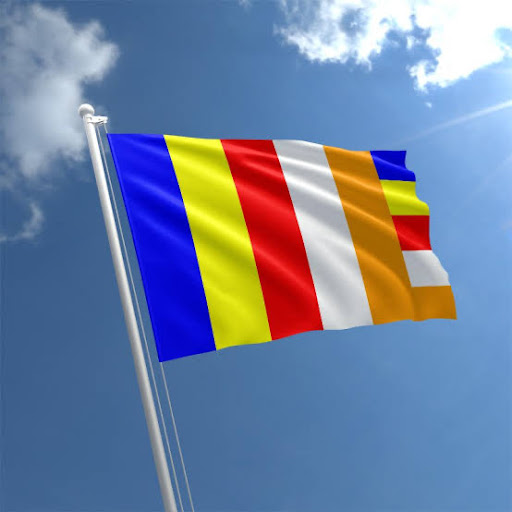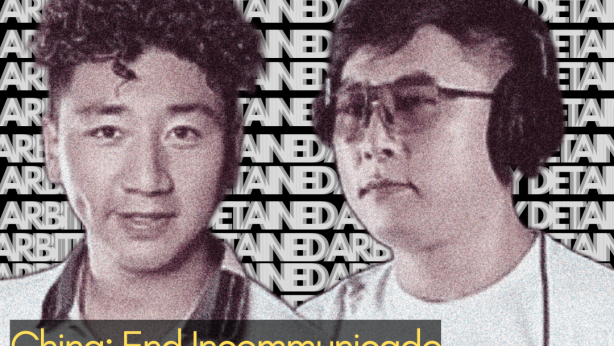China bans display of Buddhist flags at Tibetan New Year show, detains and fines organiser

Chinese authorities detained and fined a Tibetan university student for organising a ‘Losar’ New Year celebration where Buddhist flags were displayed as the backdrop on the stage instead of Chinese flags.
Information received by TCHRD confirmed that Gephel was detained on the evening of 24 January from his home in Muge Township in Zungchu (Ch: Songpan) County, Ngaba (Ch: Aba) Tibetan and Qiang Autonomous Prefecture, Sichuan Province, in the Tibetan province of Amdo.
Before he was released on the afternoon of 26 January, Gephel was fined 50000 yuan and ordered to attend ‘political education’ sessions every week.
Tibetan university students in Muge organise the show every third day of the Tibetan Sonam Losar, celebrated in parts of Tibet and the Buddhist communities in the Himalayan region.
As the chief organiser of the show, Gephel was held responsible for “engaging in activities aimed at splitting the Chinese nation”. During interrogation in police custody, Gephel was accused of breaking the law by displaying the Buddhist flag, which, according to the authorities, was the same as the Tibetan national flag. Gephel explained to the officers that the Buddhist flag symbolised universal values of peace, compassion, and wisdom and had nothing to do with politics or splitting the nation.
Gephel was ordered to attend the weekly political education sessions after he refused to accept some conditions that the police imposed, such as the mandatory use of Chinese flags and for the show’s presenters to speak in Chinese in future.
He was also imposed the hefty fine for committing specific transgressions at the New Year show: not using Chinese flags at the venue, using only Tibetan lettering to decorate the venue, all the songs and dances performed during the show were in Tibetan language and did not feature any propaganda songs praising the Party or Chinese government.
A source with contacts in Tibet told TCHRD that the requirement to use Chinese language at such shows was “absurd” when the majority of the audience were local Tibetan nomads who did not understand the Chinese language.

The Buddhist flag used by Buddhists all over the world is a rectangular flag comprising six vertical stripes. The first five coloured stripes represent Buddhist values and practices such as universal peace and compassion (blue), the Middle Way of avoiding extremities as key to spiritual attainment (yellow), the blessings that practising the faith brings (red), the purity of Buddha’s teaching and the liberation it brings (white), and the wisdom of Buddha’s teaching (orange). The final stripe containing all of the colours represents the combination of all of the virtues into a single being.
TCHRD strongly condemns the arbitrary and unlawful actions of the Chinese authorities in Zungchu County. By banning the display of Buddhist flags in public gatherings, they violated the right to manifest one’s religion or belief, which is by far the most extensive and elaborate facet to the freedom of religion and belief. Both Article 18(1) of the International Covenant on Civil and Political Rights and Article 1(1) of the UN Declaration on the Elimination of All Forms of Intolerance and of Discrimination Based on Religion or Belief include the right to freedom of thought, conscience, and religion, and “the right to either individually or in community with others and in public or private, to manifest his religion or belief in worship, observance, practice and teaching.”
Forcing Tibetans to speak Chinese at public gatherings violates both domestic legal provisions and international human rights law. Language is a significant component of a person’s cultural identity and religious practices. The restrictions placed on Tibetans from using their mother language effectively forbid them from retaining their identity, which is different from the Han Chinese majority. Since the Tibetan language is the carrier of Tibetan culture and a critical part of studying and practising Tibetan Buddhism, the Tibetan language is paramount to preserving Tibetan cultural identity.


